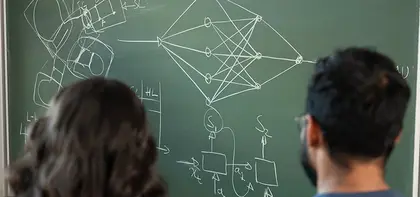
Numerical Algebraic Geometry
We are dedicated to solving computational problems in algebraic geometry and related areas using numerical techniques. This includes solving polynomial equations, computing geometric and topological invariants of algebraic varieties, algebraic optimization, tensor decomposition and variable elimination.
Research
The Numerical Algebraic Geometry group tackles several computational problems in algebraic geometry using finite precision arithmetic.
Here is a non-exhaustive list of such problems:
- solving algebraic equations,
- decomposing higher order tensors,
- computing the degree of a variety or the degree of a finite map,
- computing period matrices of Riemann surfaces and higher dimensional varieties,
- testing irreducibility of algebraic sets,
- and computing discriminants (see the picture).
In many interesting cases, these problems are only feasible when symbolic-numerical techniques are exploited.
Our computational techniques rest mainly on concepts from algebraic geometry, tropical geometry and numerical analysis. They can be used to solve the above problems, and to formulate and test conjectures. Our group also identifies theoretical questions which are motivated by these computational problems and seeks to answer them. In terms of applications, our current focus lies on algebraic statistics and particle physics.
